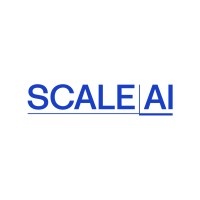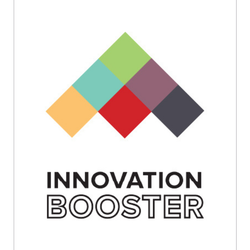
Open
Scientific Research and Experimental Development (SR&ED) — Tax Incentive Program
Last Update: December 17, 2025
Canada
Scientific research and experimental development tax credit
Tax Credits
At a glance
Funding available
Financing goals
Research and experimental development
Eligible Funding
- Up to 35% of project cost
Timeline
- Unspecified
Eligible candidates
Eligible Industries
- All industries
Location
- Canada
Legal structures
- For-profit business
- Sole proprietorship
Annual revenue
- All revenue ranges
Organisation size
- All organization sizes
Audience
- Startups
Overview
The Scientific Research and Experimental Development (SR&ED) Tax Incentive Program offers Canadian businesses deductions and investment tax credits of up to 35% of eligible R&D expenditures to encourage innovation. The program supports basic research, applied research, and experimental development carried out in Canada for scientific or technological advancement.
Activities funded
- Basic research aimed at advancing scientific knowledge without a practical application in view.
- Applied research conducted to advance scientific knowledge with a practical application in view.
- Experimental development to generate or discover technological knowledge or know-how in order to develop or improve materials, devices, products, or processes, including incremental improvements.
- Support work directly supporting eligible basic research, applied research, or experimental development, in the fields of engineering, design, operations research, mathematical analysis, computer programming, data collection, testing, or psychological research.
Examples of admissible projects:
$ 240,000
Enhancing precision agriculture through robotics integrations
$ 300,000
Innovating eco-friendly materials for packaging through experimental development and testing.
$ 240,000
Exploring new composite materials for sustainable packaging
$ 280,000
Conducting data analysis and management research to develop smarter logistical systems.
$ 250,000
Developing a new AI algorithm to optimize energy consumption in smart buildings.
$ 240,000
Developing AI-based diagnostic tool for neurological disorders
Eligibility
- The applicant can be a corporation, individual, trust, or partnership conducting eligible scientific research and experimental development (SR&ED) work in Canada.
- The work must be conducted in Canada.
- The work must aim for the advancement of scientific knowledge or technological advancement.
- The work must be a systematic investigation or search carried out in a field of science or technology by means of experiment or analysis.
- Eligible work categories include basic research, applied research, experimental development, and qualified support work (such as engineering, design, operations research, mathematical analysis, computer programming, data collection, testing, or psychological research) that directly support SR&ED.
- The applicant must link eligible work to claimable SR&ED expenditures.
- The application must be made via submitting the required SR&ED claim forms with the income tax return for the year.
Who is eligible?
- Corporations conducting scientific research and experimental development in Canada
- Individuals involved in eligible SR&ED work
- Trusts engaging in eligible SR&ED activities
- Partnerships that carry out SR&ED work
Who is not eligible
- Companies or entities whose main activities are market research or sales promotion.
- Companies engaged primarily in quality control or routine testing of materials, devices, products, or processes.
- Organizations whose core business is research in the social sciences or the humanities.
- Businesses involved in prospecting, exploring, drilling for, or producing minerals, petroleum, or natural gas.
- Companies focused on the commercial production of a new or improved material, device, or product, or the commercial use of a new or improved process.
- Entities whose primary work relates to style changes or routine data collection.
Eligible expenses
- Salaries or wages of personnel engaged in eligible SR&ED activities.
- Materials consumed or transformed during eligible SR&ED work.
- Contract expenditures for work performed on eligible SR&ED activities.
- Overhead and other expenditures related to eligible SR&ED projects, as calculated by the proxy or traditional method.
- Third-party payments directly supporting eligible SR&ED work.
Eligible geographic areas
- Businesses conducting eligible scientific research and experimental development work in Canada.
Selection criteria
- Work performed for the advancement of science or technological progress.
- Presence of scientific or technological uncertainty that justifies the work.
- The work must be conducted through a systematic scientific or technological investigation or research, carried out through experimentation or analysis.
- Categories of eligible work: experimental development, pure research, applied research.
- Supporting work must be proportional to the needs and directly support the SR&ED.
- Exclusion of work related to market studies, routine quality control, research in social or human sciences, prospecting, commercial production, style modifications, and routine data collection.
How to apply
1
Check your work eligibility
- Determine if your business activities meet the definition of SR&ED in the Income Tax Act
- Assess the eligibility of your research or experimental development work
- Ensure your work addresses scientific or technological uncertainty
2
Gather supporting documentation
- Collect supporting documentation as your project progresses
- Keep records of hypotheses, experiments, results, and conclusions
- Maintain detailed records of expenditures and eligible activities
3
Organize work into SR&ED projects
- Group eligible work into distinct SR&ED projects
- Link each project to the related expenditures
- Identify basic research, applied research, and experimental development components
4
Report eligible expenditures
- Report all eligible expenditures using form T661
- Select either the proxy or traditional method to calculate expenses
- Include expenditures for salaries, materials, contracts, and third-party payments
5
Calculate deductible and qualified expenditures
- Calculate your pool of deductible SR&ED expenditures
- Determine which expenses can be claimed as deductions
- Establish the expenditures that qualify for the investment tax credit (ITC)
6
Complete and review all forms
- Prepare and complete all required forms: T661, T2SCH31 or T2038(IND), and any relevant attachments
- Ensure all information is accurate and supported by documentation
- Review all entries before finalizing your application
7
Submit your SR&ED claim
- Submit your SR&ED claim with your annual income tax return or as an amendment
- Submit electronically using filing software or by mail, depending on your taxpayer status
- Respect all reporting deadlines based on your type of entity (corporation, trust, individual)
Additional information
- The SR&ED Client Portal, available through My Business Account, provides a secure workspace for managing claims.
- Investment tax credits (ITC) can be allocated among eligible partners within a partnership.
- Other government R&D funding received (e.g., NRC IRAP) must be reported and will reduce your ITC amount but does not disqualify eligibility.
- Support such as webinars, pre-claim consultations, and outreach presentations is available to assist applicants in understanding and navigating the SR&ED program.
Contacts
sredclprtlg@cra-arc.gc.ca
1-888-784-8709
Canada
Apply to this program
Frequently Asked Questions about the Scientific Research and Experimental Development (SR&ED) — Tax Incentive Program Program
Here are answers to the most common questions about the Scientific Research and Experimental Development (SR&ED) — Tax Incentive Program. This section explains what the program is, how much funding is available, eligibility requirements, application deadlines, and other important details to help you determine if this grant is right for your business.
What is the Scientific Research and Experimental Development (SR&ED) — Tax Incentive Program?
How much funding can be received?
Who is eligible for the Scientific Research and Experimental Development (SR&ED) — Tax Incentive Program program?
What expenses are eligible under Scientific Research and Experimental Development (SR&ED) — Tax Incentive Program?
Who can I contact for more information about the Scientific Research and Experimental Development (SR&ED) — Tax Incentive Program?
Where is the Scientific Research and Experimental Development (SR&ED) — Tax Incentive Program available?
Is the Scientific Research and Experimental Development (SR&ED) — Tax Incentive Program a grant, loan, or tax credit?
Apply to this program
More programs like this

Grant and FundingOpen
Industrial Research Assistance Program (IRAP) — Financial Assistance
National Research Council Canada (NRC)Financial support for technology innovations

Grant and FundingClosed
Industrial Research Assistance Program (IRAP) – AI Assist
National Research Council Canada (NRC)Supports Canadian SMEs in adopting and integrating advanced AI solutions

Tax CreditsOpen
Clean Technology Manufacturing (CTM) Investment Tax Credit (ITC)
Canada Revenue Agency (CRA)Incentivize Canadian companies to invest in clean technology

Tax CreditsOpen
Clean Technology (CT) Investment Tax Credit (ITC)
Natural Resources Canada (NRCan)Offer up to 30% refundable credit for capital investments in new clean technologies in Canada

Partnering and CollaborationGrant and FundingOpen
Strategic Innovation Fund (SIF)
Innovation, Science and Economic Development Canada (ISED)Strategic Innovation Fund supports transformative Canadian economic investments

Grant and FundingOpen
AI-Powered Supply Chains Cluster (Scale AI)
Global Innovation Clusters (GIC)Funding to enhance supply chains with AI

Researchers And FacilitiesPartnering and CollaborationGrant and FundingClosed
AgriScience Program – Clusters
Agriculture and Agri-Food Canada (AAFC)Funding for agricultural research and innovation collaboration

Wage Subsidies And InternsOpen
Industrial Research Assistance Program (IRAP) — Youth Employment Program (YEP)
National Research Council Canada (NRC)Money to hire a student

Grant and FundingClosed
CFIN Innovation Booster
Canadian Food Innovation Network (CFIN)Funding to advance and commercialize food innovation

Tax CreditsOpen
Tax incentives for mining and exploration
Canada Revenue Agency (CRA)Federal and provincial tax incentives support mining and exploration activities
Sign up to our platform to access the Scientific Research and Experimental Development (SR&ED) — Tax Incentive Program information sheet for free
Get access to 4,000+ programs, practical guides, personalized alerts, and an AI assistant to support your grant applications.